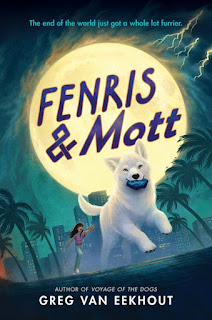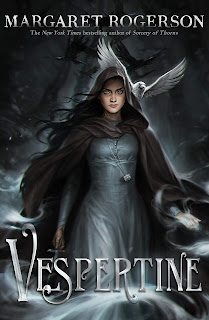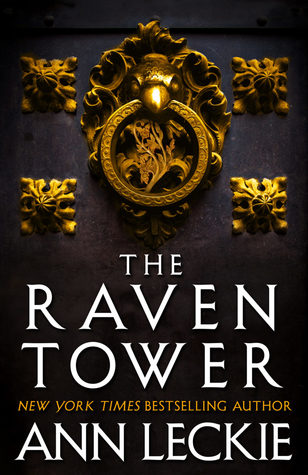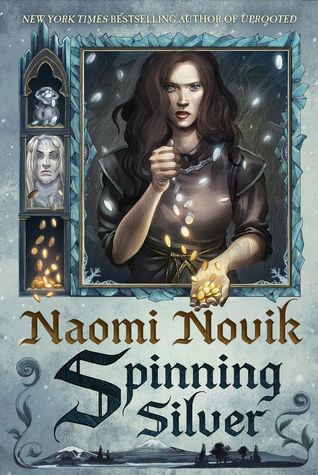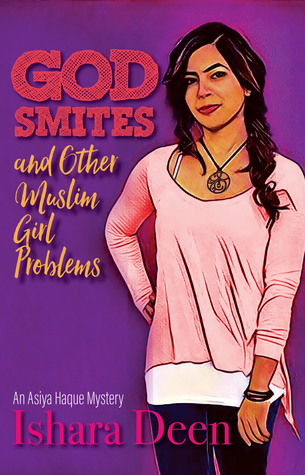I finally got around to reading
Tess of the Road, and I don't know what took me so long! As usual, all the Bloggers I Trust were absolutely right: this is a fantastic, moving, meaningful book.
It's also a very hard book to talk about. It's not what you expect: it doesn't fit into any categories. It's a quest fantasy, sort of, but Tess has no idea what she's questing for. It's a coming-of-age story, but before Tess can come of age she has to overcome her childhood, which is not usually what fantasy coming-of-age is about. There is magic, but it looks more like religion—and oh, interesting and thought-provoking take on religion in general, which almost never happens, especially in fantasy. There are dragons, sort of, but not in the same way as in
Seraphina. The one on the cover is metaphorical. There are lots of metaphors.
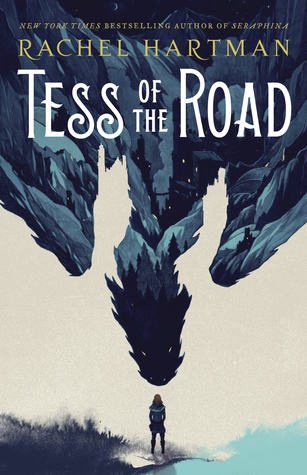
Okay, let's start with Tess. I loved Tess. She is so. messed. up. I wish I still had my copy of the book so I could find the amazing quotation about how she wouldn't just cut off her nose to spite her face, she'd ... (someone help me out here, it was such a great line!). Stubborn, angry, alcoholic, she's in so much pain and she is trying. so. hard. It just isn't working. Tess has been taught to hate herself, and she's doing an excellent job. She's difficult to read about, at first, because she's so frustrating. (Then she punches someone who really deserves it, and you're like, "yesssss! but noooooo, you shouldn't have done that!"
Tess finally runs away from her (mostly) quite horrible family. She has no idea where she's going; she's seriously contemplating suicide, but she isn't quite committed enough; she wakes up every morning and decides to "walk on" for one more day. Then she runs into her childhood friend, a quigutl named Pathka, and woah, quigutls have some interesting customs! And Pathka has some past trauma ko has to get over as well. (Ko is the non-gendered pronoun quigutls use.)(They have a very cool language, too.)
The plot seems random: Tess and Pathka are going down the road and meeting random strangers and doing random things. At one point Tess joins a road-building crew. (Pretty sure that's never happened in a quest fantasy before!) Pathka is looking for a mythical giant serpent, and Tess is like, sure, why not? Let's go look for something that might not exist. But then things start to come together in very satisfying ways. Tess is trying to forget her past, but every encounter she has brings up some memory, and gives her a new way to process it. She doesn't realize that she's on a quest for healing, but that's what starts to happen. It isn't easy. It's incredibly painful, actually. But she finds wisdom and grace and acceptance and she begins to reclaim herself. The fist-pumping that happens in this story is nothing to do with action and defeating enemies and all about interior journeys and defeating inner demons.
Don't give up on this book if you hate the beginning, with Tess's self-defeating flailing and the horrible women-hating religion and her awful, awful mother. All of these things are dealt with in surprising, nuanced and powerful ways. Motherhood, sisterhood, family, love—it's all turned inside out and held up to the light, and Tess comes away with some truth she can stand on, a woman she can be. (Oh, yeah, and she's disguised as a boy most of the time. There's some serious identity stuff going on!)
The writing is beautiful. I would quote endlessly if I still had my copy (I got it out of the library, but I'm going to buy the real book for myself because I like it that much, and that cover!) E.K. Johnson says Hartman can "kill your heart with her grammar" (which, by the way, is something Johnson is really good at, too!) and that's a great way to put it. There are some lovely, lovely, bits: wise or heartbreaking or numinous or just really funny. (If you love E.K. Johnson, you'll love
Tess of the Road.)
Don't read it if you want flying dragons and, I don't know, anything typical of fantasy in general. Don't expect it to be a sequel to
Seraphina and
Shadow Scale: it's an entirely different book (Seraphina does show up in it, and it's great to see her, but it's not her story at all)(I want to re-read
Seraphina now to see what it says about Tess: I don't remember her from it). Do read it if you like your fantasy to deal with real stuff in thoughtful, realistic ways, if you like characters who learn and grow and figure themselves out, if you like interesting, original fantasy worlds. (The more I read, the more I appreciate books that are
interesting!)
I feel like I'm not conveying how much I liked
Tess. I loved how different it was from expectations. Nothing was predictable; everything was fresh and surprising and fun. I'm making it sound painful but it's actually very funny most of the time. Tess is a mess but she's a compelling, hilarious narrator. Your heart breaks for her, but she could care less what you think! She makes you root for her all the way, and I loved where she ended up.
This is apparently book 1, and I can see where the sequel will go, but this had a satisfying ending. I will be happy to read more of Tess's adventures though!
Really dark chocolate with a flavour you wouldn't think would work with chocolate but somehow does. Maybe ginger? Or something less immediately identifiable. Cardamom, maybe, or black pepper.
